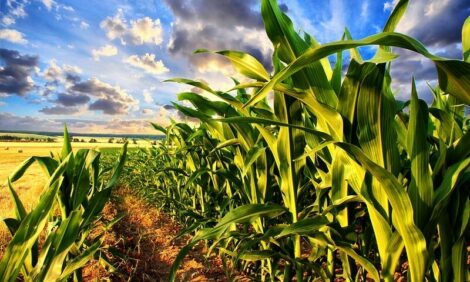



Kansas Dairy Keeps Progressing
US - A Kansas family has expanded their artisan cheese business from a table top industry to now being holders of a cheese plant license. Ron Wilson of the Kansas State University, went to find out more.Sharp. Extra sharp. Those terms might describe a pencil or a razor, but in this case, they describe flavors of cheese. Today we’ll learn about an innovative dairyman who is adding value to his milk by making artisan cheese on his own farm.
Jason and Sheri Wiebe are owners of Jason Wiebe Dairy near Durham, Kan. Jason is the third generation of his family on this place. His grandparents moved here in the late 1920s and started milking cows, meaning that cows have been milked on this place for more than 80 years.
Jason started milking his own cows at age 17 and eventually moved into ownership of the family farm. By 1999, he was looking to add value to the dairy enterprise.
“We started making cheese in our kitchen,” he said. Friends and family liked the cheese, so the Wiebes expanded. They converted a small building near the dairy barn into their cheese production facility. Jason now commutes to this facility daily – it’s a 20-second walk from his house.
In later years, the Wiebes called on Kevin Herbel of K-State’s Kansas Farm Management Association who provided financial advice for the farm.
In February 2003, the Wiebes got their inspections, gained their permit and became a licensed cheese production plant. Kevin’s son Aaron Herbel happened to join the business as assistant cheese maker.
The Wiebes now milk 120 cows twice daily. They specialize in natural, artisan cheese produced from their own milk production. Excess milk is marketed to a company in Arkansas.
“All the cheese we make here is from our own milk,” Jason said. Cheese is produced at least two times a week. “If we start by 8:30 in the morning, we can have it in the press by 4:00 that afternoon,” Jason said. “It’s a block of cheese the next morning.” The cheese is refrigerated and some is aged. After aging for nine months, cheeses are considered sharp. After they age for 15 months, cheeses are considered extra sharp.
The Wiebes produce cheese made from both pasteurized milk and raw milk. Jason has found there is growing consumer interest in the raw milk cheese, which some see as a health food.
“My aunt can’t eat pasteurized cheese, but she can eat the raw milk cheese,” said Aaron Herbel.
They market their natural cheese in several flavors: raw milk cheddar, Colby, jalapeño, hot habanero, Cajun, southwest chipotle, dill weed, garlic & herb, and white cheddar with garden vegetable. Yum. They also produce and sell cheese curds.
The Wiebe farm is located where the historic Santa Fe Trail crossed the Cottonwood River in central Kansas. In fact, Wiebe dairy cows literally walk across the ruts left by countless wagon trains more than a century ago.
In October 2010, with help from an international cheese consultant based in St. Louis, the Wiebes launched a new line of product called Cottonwood River Cheddar. Jason is excited about the positive response to this new cheese.
Today, cheese from the Jason Wiebe Dairy is marketed through grocery stores in central Kansas and a 28-store grocery chain in Kansas City, along with sales over the Internet. The Wiebes are literally selling the raw milk cheese coast to coast, from Oregon to Florida. That’s a remarkable achievement for a family-owned dairy near the rural community of Durham, population 114 people. Now, that’s rural.
In 2006, Jason submitted his jalapeno cheddar cheese to a competition at the World Dairy Expo and finished in the top two. That same cheese scored in the top five at the U.S. championships in Wisconsin.
“Our goal is to make the best cheese you have ever eaten,” said the Wiebes’ website. For more information, go to www.jasonwiebedairy.com.
TheCattleSite News Desk


